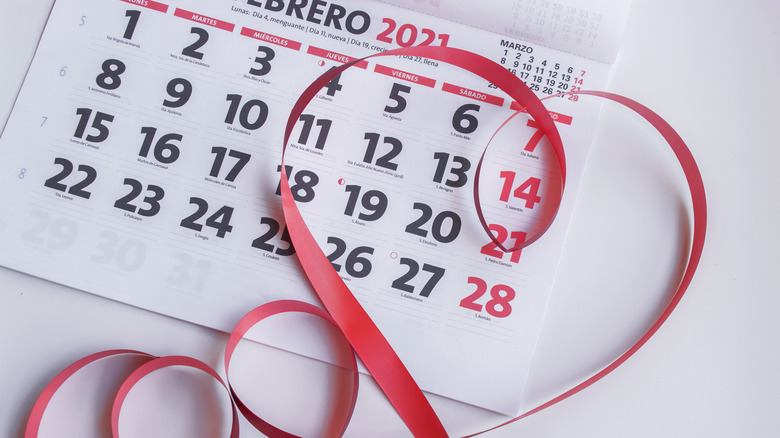
fizkes/Shutterstock
By Reecha Kulkarni/Aug. 24, 2021 11:20 am EDT
The future is only here when Google comes up with a map to navigate relationships for us. Until then, Gary Chapman’s “The Five Love Languages” may be of some help. The book stays steady on New York Times’ bestseller list, offering relationship advice to people who can’t seem to figure their partner out. The five love languages are Quality Time, Words of Affirmation, Physical Touch, Acts of Service and Gifts (via New York Times).
If you’re not sure what your partner’s love language is, take them on a really great date. Compliment their outfit, hold their hand in intervals, pay for the date and make sure your phone is switched off throughout. Ask them what they loved most about the date. If they picked the fact that you took the time to plan the date and spend time with them, their love language might be Quality Time.
While this may be an overly simplified way of figuring out love languages (definitely visit Chapman’s website to know more), it may help in understanding the concept of “my partner is not me.” We all express love differently and if your partner’s love language is quality time (and yours isn’t), read on to find out how you can express love to them the way they’d want it.
Prioritize the time you spend with your partner

When your partner’s love language is quality time, you want to be able to prioritize them in your schedule. “Nothing says ‘I love you’ like full, undivided attention from those you love … whether it’s spending uninterrupted time talking with someone else or doing activities together, you deepen your connection with others through sharing time,” Gary Chapman told Mind Body Green. Essentially, that means scheduling time to hang out with each other, whether its having coffee in the morning, preparing a meal together or just scrolling through TikToks on the same phone. Chapman also suggested to keep multitasking habits out of the way, “Distractions, postponed activities, or the failure to listen can be especially hurtful.” Meaningful eye-contact, switched-off phones and staying present while they’re speaking may all help with that.
While Chapman’s theory isn’t scientific, it is a phenomenon that clearly resonates with people. Stefani Goerlich, a Detroit-based psychotherapist told Mic, “I don’t consider it to be an evidence-based practice, but I do find it to be a very useful tool and use it in all of my work with couples … I have found that 8 times out of 10, whatever the issues are that my client-couples bring to the table, they are rooted in a fundamental misalignment in how each partner gives and receives love.” Either way, planning dates and putting your phone away while being with your partner might be good advice for anyone in a relationship.
Source: Read Full Article
